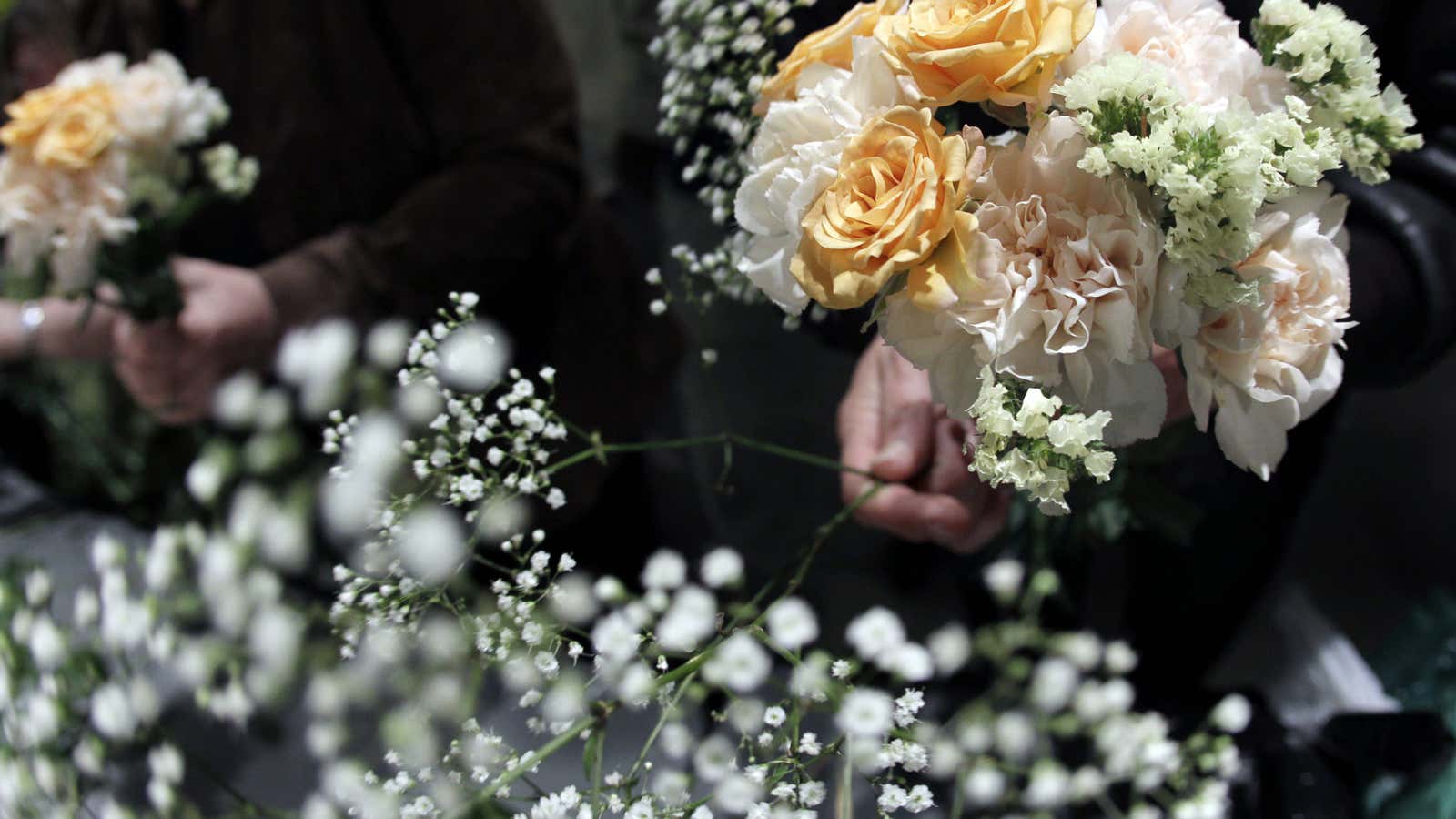Baby’s breath, a staple of bridal bouquets, could become Kenya’s first commercially grown genetically modified (GM) flower.
By introducing genes that alter the color of baby’s breath’s tiny white flowers, producers hope to create a new offering from Kenya’s flower industry. This is despite a decision to halt field trials of GM crops, including GM maize and cotton.
But unlike crops, flowers do not have the same safety concerns. In a report by the United States Department of Agriculture, the regulator concludes: “Given the non-controversial nature of the GM plant in terms of food and environmental safety, Gypsophila may be the first GM plant to be commercialized in Kenya.”
The East African country is a major flower exporter, with its flowers sold in more than 60 countries. With a price tag of 70.8 billion Kenyan shillings ($680 million), the flower industry is a major contributor to its gross domestic product.
Kenya’s Biosafety Authority is reviewing an application (pdf) by Israeli company Imaginature to produce transgenic baby breath, also known as Gypsophilia. Traditionally white, the manipulation of the baby’s breath genes will produce flowers ranging from pink and purple to dark red and even green.
Prior to Imaginature’s application, it had grown GM gypsophila in confined field trials under the supervision of the Kenya Plant Health Inspectorate in Naivasha, which is northwest of the capital Nairobi.
The company’s aim is to grow 10 hectares of this GM baby’s breath, and produce around 8 million cut flowers.
“Our target is to introduce new and exciting cut-flower varieties. The technology is only a means to meet this goal,” the company said in its application to Kenya’s Biosafety Authority. “We are targeting markets that have a regulatory system in place and are open to import transgenic flowers.”
If successful, Kenya would be the first country to authorize the production of these varieties, it said.
About 95% of the flowers grown in Kenya are exported, says Kenyan Flower Council CEO Jane Ngige. The European Union is a major market for Kenya’s flower industry with a market share of 38%, she says.
But GM crops remain controversial in some European countries, with Germany, Scotland, and Northern Ireland banning the cultivation of these organisms. However, that appears to be confined to crops that are consumed by people or animals.
Catrijn Schipper, a program manager at the Centre for the Promotion of Imports from developing countries which is part of the Netherlands Enterprise Agency, says: “GM flowers are for sale in the Netherlands and on the EU flower market, but we are not aware of any specific regulations or policy.”
The call for public comment closed on 15 July this year, with the Biosafety Authority saying it will review the “safety assessments, socio-economic considerations and comments.” A decision is expected in the next few months.
